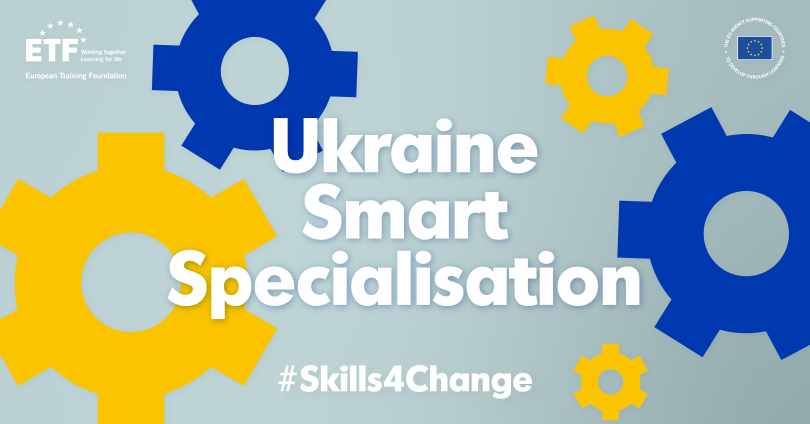
Ukraine: Going with the grain
In Ukraine's north-western region of Rivne - centred around a city first mentioned in the chronicles in the 13th century, and midway between the capital, Kyiv, and the historic city of Lviv - local leaders are going with the grain to use smart specialisation to boost regional economic growth and prospects in the woodworking and furniture industry.
Building on the EU's Smart Specialisation policy - which, since 2011, has been used as a tool by policymakers to sharpen approaches to education, training, skills and economic development - Ukraine adopted a similar approach last year.
Part of the State Strategy for Regional Development 2021-2027, smart specialisation is a collaborative approach to policy-making. It aims to boost jobs and growth by enabling individual regions to determine their own strengths, and develop their own competitive advantages. The European Training Foundation brings its expertise in vocational education and training (VET), evidence-based tools for policy development, and monitoring expertise to help ensure the effective implementation of smart specialisation.
In Rivne woodworking, carpentry and furniture making has been identified as an area suitable for support through the multi-faceted approach of smart specialisation. The sector already represents a major source of employment in the region, accounting for 5.9% of jobs - an increase of nearly a quarter over the past five years. Currently employment in the sector is growing by 4.5% a year.
But, although the sector is buoyant, it faces serious challenges to future growth if it is to successfully find its place in global supply chains, including developing sustainability of raw material supplies as climate change impacts forestry, and accessing the skilled labour force it requires. One local business-owner has told regional policymakers that their order books are full and state-of-the-art machinery is on hand to process timber into consumer-ready furniture, but they cannot find the qualified workers to operate it.
This is where smart specialisation steps in to forge the partnerships and peer-sharing networks that can help address such issues, and by doing so create a sustainable eco-system of innovation.
The ETF, which has a solid track record in monitoring and analysing policy formulation and development in VET, is now expanding its approach to a broader range of activities designed to encourage innovation, growth and competitiveness. It has developed tools for analysing the skills implications of smart specialisation strategies. Since 2020 it has been closely cooperating with the Ukrainian Ministry of Education and Ministry of Economy to pilot analysis centring on foresight action and peer learning partnerships in the Rivne region - woodworking and furniture manufacturing - and Kharkiv, where high-value added manufacturing is the targeted smart specialisation.
The importance of the new approach was highlighted earlier this year at a two-day online ETF conference looking at Rivne's progress in using foresight to better plan for skills provision to meet the labour force needs of the woodwork and furniture manufacturing sector.
Petro Korgevskyi, head of the regional education department, identified a key challenge to addressing labour needs, noting that, "our VET schools are not equipped with innovative machinery. We need people who know how to work with up-to-date equipment, and their skills need to be up-to-date too."
Meeting the needs of a regional industry where there is currently only one qualified applicant for every eight job vacancies represents a major challenge, even where manufacturers and VET schools work closely together: modern furniture making equipment is sophisticated, computer-operated machinery that can cost up to €100,000, meaning that VET schools would need to make hefty investments to upgrade the equipment they use to train skilled workers.
And those are just the practical challenges - the demands of modern manufacturing are such that some doubt traditional VET schools can meet them. Orest Kiyko, of the Ukrainian National Forestry University, told the same meeting that the creative thinking required of workers would best be fostered by higher education - a view backed by independent experts.
It is addressing just such challenges and arguments that the ETF's new focus on analysing the demands of smart specialisation are designed to help: Hélène Overmeer and Tjalling Mulder, of the Hout- en Meubilerings College, the Netherlands, told their Ukrainian colleagues that encouraging a "golden triangle" of cooperation between teachers, students and companies - with a strong focus on innovation and international projects - provided a strong platform for a way ahead. And that is just what foresight planning and peer learning in smart specialisation is all about.
Did you like this article? If you would like to be notified when new content like this is published, subscribe to receive our email alerts.